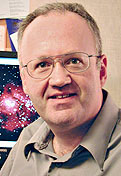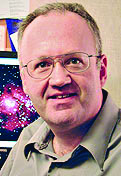 |
|
 |
2010
May
30-31
|
No more .NET 1.1?
I knew that I could no longer run DOS applications under Windows 7, but
it's more annoying to learn that .NET Framework 1.1 is also no longer supported.
That means my C# programs written between 2002 and 2005 won't run unless
re-compiled. Starting with .NET 2.0 in 2005, we have a system where each version
includes the earlier ones, and all is well. But .NET 1.0 and 1.1 are out in the cold.
Reportedly, if you install .NET 1.1 and immediately install .NET 1.1 SP1 (Service Pack 1)
under Windows 7,
you'll
get a (mostly) working configuration in spite of messages that say
it didn't install correctly. I haven't tried this.
And there's always Windows Virtual PC with Windows XP Mode
(XP in a VM under Windows 7 Professional and Ultimate).
Or you can apparently run Virtual PC 2007 (free and intended for Vista)
under lower levels of Windows 7, and host one
of your old copies of Windows 2000 under it.
I have not tried this.
While you're creating virtual machines, you can also preserve your old DOS, OS/2, and Linux machines
the same way — I did.
In general, I like the idea of supporting older software through virtualization of older
operating systems (the old OS runs in a box inside the new OS).
But I wish it were supported a bit more seamlessly.
Permanent link to this entry


|
2010
May
29
|
Windows Server 2008 backups demystified
The Windows Server 2008 backup system — and especially its limitations — had
me totally mystified until I found wbadmin.info.
Read and be enlightened.
The key idea is that, for speed, they're imaging the disk, block by block, not the files.
And skipping blocks that won't be needed (pagefile, blank space, etc.).
And automatically backing up only the changed blocks if there is a pre-existing full backup.
And doing this by replacing those blocks in the full backup, so that the full
backup is always current and the past versions are incremental.
And automatically discarding past versions as the backup disk fills up, so that you
always have a current full backup.
And allowing restoration (though not backup) of specific files and folders.
Not bad, despite the obscure documentation!
Permanent link to this entry
If you can't delete a folder in Windows...
I spent some time today cleaning up folders that were hard to delete. Here are the main reasons
why an administrator might not be able to delete C:\foo.
(1) You need administrator privileges.
Right-click on Command Prompt and choose Run As Administrator. Then try:
del /s /q /f c:\foo
(2) Some of the files or folders may be hidden, system, or read-only. Try
attrib -r -h -s c:\foo /s /d
and then the preceding.
(3) You may not have permission to delete the files and folders.
(Administrators don't automatically have it; that's a big change from UNIX.)
Assuming you're in the Administrators group, try this:
cacls c:\foo /t /e /g Administrators:F
followed by steps (2) and (1).
(4) If you can't change permissions, maybe you don't have ownership of the files
and folders. Try:
takeown /f c:\foo /r /d Y
followed by steps (3), (2), and (1).
(5) If all that fails, you probably have something wrong with the file system.
Try
chkdsk c: /r
and reboot, then try steps (4), (3), (2), and (1).
Steps (4) and (5) have been combined into a handy right-click menu item in the
registry script here.
(Caution: confusing web page! Do not download anything!
Copy the registry script into a text file and follow the instructions.)
Permanent link to this entry


|
2010
May
27-28
|
A good $6 fountain pen
 I'm
very busy, have been traveling, and will write more later, but let me quickly
pass along a recommendation.
During my peregrinations I bought a new-model
Sheaffer Calligraphy fountain pen
(fine point, color-coded red)
and strongly recommend it. I'm
very busy, have been traveling, and will write more later, but let me quickly
pass along a recommendation.
During my peregrinations I bought a new-model
Sheaffer Calligraphy fountain pen
(fine point, color-coded red)
and strongly recommend it.
I may have just been lucky; there is a lot of unit-to-unit variation with
cheap pens.
But this one writes smoothly and elegantly.
It takes Sheaffer cartridges and also the piston converter for filling from an ink bottle.
The fine nib (0.8 mm) is the only one suitable for regular handwriting; the other nibs
are for larger lettering.
This latest incarnation of the Sheaffer Calligraphy Pen (which has had several earlier
models) is smaller and lighter than the others, and it
has a pull-off cap, which I prefer for quick access; unscrewing a pen cap is
time-consuming if you do it dozens of times a day.
The only strange thing about this pen is the pair of slots (not transparent patches, but actual
openings) in the side of the barrel, to let you see the ink level.
In my opinion they are not good for the grip. I suppose I might fill them in with epoxy or something.
Permanent link to this entry


|
2010
May
26
(Extra)
|
First image with the DFK

In very unsteady air, using my 5-inch telescope and the new DFK camera,
I was able to get this image of the lunar crater Anaxagoras (bright,
at the top) and its surroundings. Best 2000 or so out of 3600 video frames.
Permanent link to this entry


|
2010
May
26
|
Short notes (mostly book recommendations)
My new ImagingSource
DFK camera
has arrived, so of course we're going to have 6 weeks of cloudy weather.
It will replace the modified webcam that I've been using for planetary work since 2003.
The best thing about it is the image capture software, which I've already tried out.
Choosing a codec was puzzling, but I ended up opting to record uncompressed RGB24 video
(which RegiStax will accept). Files in this format occupy about 1.2 gigabytes per minute
at 30 fps. Bring a big disk drive!
Windows secret of the day: Ctrl-Shift-Esc will bring up Task Manager. I didn't know this
until I learned it from...
Recommended book:
Mark Minasi et al.,
Mastering
Windows Server 2008 R2.
After a three-year-or-so respite, I am again in the pilot's seat, administering our
Windows systems, and to my relief, Windows Server seems to have gotten better organized.
Minasi's books are, as always, the best sources of information.
Recommended book:
Charles Platt,
Make: Electronics.
The ideal book for any beginner wanting to get some hands-on experience.
Even though I've been doing electronics for over 40 years, I still like to read
things like this because every technician develops his own ways of using tools
and designing small pieces of equipment.
Recommended book:
Ben Watson,
C#
4.0 How To.
Worked examples of everything from class definitions to TCP connections.
Permanent link to this entry


|
2010
May
24-25
|
Some interesting software defects
The Google Chrome Browser, which I like, doesn't work well in
roaming user profile setups. It wants to install itself in Local Application Data,
which is lost when the roaming user logs off.
You can get it to install in Program Files by downloading from pack.google.com,
but then it still stores its configuration in Local Application Data and
wants to "finish configuring" itself every time you log on.
Dreamweaver 8.0.2 (which is admittedly a few years old)
crashes randomly (such as when adding a link to a PDF file) when
running under Windows 7 64-bit. There is no error message; it just quits.
In our experience, an Adobe patch intended to fix this problem didn't fix it.
The problem itself is curious. It's hard to write a Win32 program that
works under Windows XP but doesn't
run correctly under Windows 7, and if you do, it is very likely to give an
error message, not just quit and disappear. Adobe must be trapping the error
and closing the program. That is, they must have written some extra code
specifically to keep you from seeing a crash report.
Permanent link to this entry


|
2010
May
23
|
Moon crater

This is a somewhat undistinguished picture of the lunar crater Copernicus through
my 8-inch telescope. The view was blurred by unsteady air more than I wished.
Stack of about 500 video frames, aligned (multipoint) with Registax.
Permanent link to this entry
Fixing a slow laptop
If your computer runs much slower than it ought to, the problem may not be
software. It may be the hard disk.
For years, and especially recently, Cathy's 2003 HP laptop has been slow.
There were frequent 10- to 30-second pauses at inopportune times, especially
during disk activity. Wiping the disk and reinstalling Windows didn't help.
The poor computer couldn't boot Linux from CD; Linux would crash with obscure
error messages.
At the suggestion of Ananta Palani, IAI lab technician, I replaced the hard
disk. Presto! The computer now runs Linux without a hitch; we may put Windows
back on it later.
This isn't the first time I've seen the symptom. Some hard disks don't report
errors; they just re-try, over and over and over, making your computer run at a
snail's pace. I've had a couple of computers over the years simply slow down
because of a failing disk drive.
Permanent link to this entry


|
2010
May
21-22
|
Short notes
The layout of our campus is very simple:
North Campus in the north,
South Campus in the middle, and
East Campus in the south.
(No, I'm not kidding.)
Jupiter has lost a stripe:
Even CNN
has noted that the South Equatorial Belt (SEB) has vanished, as it does periodically.
Jupiter is just now coming into view after several weeks of being in nearly
the same direction from us as the sun. Currently, it's only visible right before
sunrise, which is why I'm not photographing it, but I hope to have lots of pictures
of Jupiter and the reappearance of the SEB, expected to be a turbulent event,
later in the summer.
Summer safety tip:
Do not use blogs, Twitter, Facebook, or MySpace to tell everyone when you're
away from home, whether for an hour or for a week.
Remember that nothing is as private as you intend, and you
don't want to invite burglars to visit you!
(And no, I'm not away from home. We have no plans to leave the house empty at any
point during the summer.)
Permanent link to this entry


|
2010
May
19-20
|
Downgrading the University?
Today the president of our university gave his
budget briefing.
Apparently, there will be no more furloughs,
but there will be some program cuts and layoffs.
One fact jumped out at me. The State of Georgia is funding us with the same
number of dollars as in 1999, but now we have 15% more students, and of
course we've had 30% of cumulative inflation. By that criterion, we've been
downgraded at least 45%.
What does the Legislature expect us to do? Apparently, to become more like a private
university. Tuition has been raised sharply in recent years, and there is
increasing reliance on donations.
I wonder whether we are doing that with our eyes open.
This is not the "economic downturn." The decline was happening even
while the economy was booming.
Permanent link to this entry


|
2010
May
18
|
What it was
The strange Latin poem in
yesterday's entry
is a translation of
"Popeye the Sailor Man."
Permanent link to this entry


|
2010
May
17
|
How car remotes work — and a safety tip
As I slowly move into driving cars made in this millennium or nearly so, I'm learning a little
about how "remotes" work. Those are the little transmitters on your keychain that
let you unlock the doors from a few feet away.
Each transmitter outputs a unique code. Transmitters don't need resetting when their
batteries are changed.
If there's programming to be done, you program the car. On a 1996 Ford Taurus,
for instance, you perform a secret manipulation of the car's controls to tell the car to
listen, and then you press one button (any button) on each of up to four transmitters.
That tells the car to recognize those transmitters.
(The secret manipulation is not in the owner's manual, and please don't write to me to ask
for it. You can find it on line the same way I did.)
It follows that if your car has been in the hands of a mechanic, or parking-lot attendant, etc.,
and then some of your remotes don't work, you need to reprogram the car immediately because a thief
may have programmed it to recognize his transmitter.
Because programming is done in batches, whenever you reprogram the car, it will only
recognize the transmitters that were present at the time.
The bad guy probably had one of your transmitters, but not all of them.
So he could program the car to recognize his transmitter and the one of yours that he had.
It won't recognize other transmitters that you may have had somewhere else.
This leads to a further security tip: Don't give the parking attendant the transmitter
at all, just the key. Or give him a key and transmitter other than the one you use every day.
Permanent link to this entry
Facetiae
What is this, and why did Sharon laugh convulsively when I sang it?
Exóphthalmos nauta sum,
Exóphthalmos nauta sum,
Ad finem pugnabo,
Spinaciam edo,
Exóphthalmos nauta sum!
The language is Latin, with one recurring Greek word, a nickname.
Hint: It is not a limerick, or at least is not normally included in
collections of limericks. Yet every American is familiar with it.
And I said that I sang it.
Answer: This is a translation of "Popeye the Sailor Man," partly based on
one that appeared in The Classical Outlook about
a third of a century ago, with improvements of my own.
Now you know.
Permanent link to this entry


|
2010
May
16
|
"Out for the summer"?
The students have gone away, and everybody thinks I'm "out for the summer."
Actually, I'm employed full-time, thanks to a research grant.
"Out for the summer" would mean unpaid, and it's a situation I try to avoid.
Actually, I think it's wasteful that universities send most of their students
away for the summer. Besides making employment awkward for the faculty
(who still have to eat and make house payments), it leaves the buildings and
facilities unused, and wastes the students' time.
I think the tradition of going away in the summer reflects several obsolete
conditions, among them:
- Non-air-conditioned buildings (in the past) that were very uncomfortable in the summer.
- Needing the children home to work on the farm.
- Among less urban people, the feeling that being indoors is unnatural and is tolerable
only when the weather is too cold for anything else.
- Above all — and this is no longer remembered, but it's a fact with many lingering
effects — the fact that, 150 years ago, college teaching was basically a hobby for the
independently wealthy. It's no coincidence that so many early Yale and Harvard faculty members
came from rich families.
We should run the University year-round and deliver bachelor's degrees in three years
instead of four. This would save costs for everybody.
Which brings me to another thing: the six-year four-year degree.
In my student days, most state universities were on the quarter system.
A full load was defined as (and remains) at least 12 hours per week of instruction.
Back when most courses were 5 hours, you'd normally take three of them, a 15-hour load,
and move along at the right rate to finish a B.A. in four years. Two courses, or 10 hours,
would not qualify you as a full-time student.
Our university, and many others, converted to the semester system with 3- and 4-hour
courses. Although the expected load was still 15 or 16 hours, students quickly found
that they could register for just 12 hours with no loss of full-time status.
They then progressed toward the degree at three quarters of the intended speed.
The excuse was that the lighter load gave them higher grades, time for more frat parties,
or both.
And once this starts, it's insidious. Everybody wants to take more time in order to get
higher grades and a better selection of courses. That means every student takes up space
longer — in effect, simply takes up more space — than the system was
designed for.
Worse, the University starts adapting to the new way of doing things, and courses aren't offered
quite as often; students have to wait for things, such as art studio space, introducing delays
that would not have been tolerated if everyone had been serious about getting out in four years.
Somehow, Emory, which is also on the semester system, does a much better job of getting people
through in four years. Maybe this is because Emory is expensive.
Permanent link to this entry


|
2010
May
15
|
The Volvo part everybody needs
If your car is like mine, you have one or more lighter sockets with no lighters in them.
Nowadays, they are just power outlets.
But the rubber plugs or caps that say "12 Volt" get lost easily.
Pep Boys doesn't have replacements for them, but Volvo does.
Regardless of the make of your car, just go to any Volvo dealer's parts window,
and you can buy these rubber plugs for about $5 each. Volvo's plugs seem to
be designed so that the same plug will fit more than one size of socket.
Permanent link to this entry


|
2010
May
14
|
Everybody needs two banks
I know someone whose debit card was compromised and her checking account was emptied out.
She'll get the money back, of course, but it doesn't happen instantly, especially
since she's young and has little credit. Fortunately, most of her money is in a
different bank.
This is why everybody needs accounts at more than one bank. You need to have some
money stashed where an online bank robbery of the first bank won't affect it.
I refer to this as bank robbery rather than identity theft. If someone takes money
out of your bank account without your permission, they're robbing the bank;
they're merely inconveniencing you.
Permanent link to this entry


|
2010
May
13
|
Machines don't "consume" energy
Responding to yesterday's entry, a correspondent asks me to point out
(quite correctly) that you will not run down a car battery by listening
to the radio for half an hour or so (assuming it's not a super-loud
neighborhood-blasting monster). You don't have to run the engine
to power the radio when you're doing that. The radio just doesn't
consume that much energy.
More precisely, machines (including radios) don't "consume" energy at all.
They change it from one form to another.
If a lot of noise, movement, heat, light, or electromagnetism
is coming out of a machine —
whether intentionally or not — then a lot of energy is going in.
And if not, then not much is going in.
It follows that a space heater, a Skilsaw, a vacuum cleaner, and an air conditioner
are big energy users. They produce a lot of heat, a lot of movement, a lot of noise,
or some combination of the three. (The air conditioner outputs heat selectively —
it has a cool side and a hot side. That's more complicated than just outputting heat,
but all you need to know is that a substantial amount of energy is needed.)
It follows, also, that a small radio, a calculator, an iPod charger, and the like
use relatively little energy. What doesn't come out doesn't go in.
(I wouldn't leave an iPod charger hooked up in a car that's going to sit unused
for two weeks, but for one night it's OK.)
Which is why, as I have said earlier, it is silly for the government to ask us to unplug
our cell-phone chargers when we're not using them. I measured the heat output of one;
it's on the order of 1/4 watt. You'd save more energy by leaving your overhead lights
off for a few minutes each day. If a cell-phone charger uses appreciable
energy when it's not charging a cell phone, it's defective or badly designed.
There are two red herrings on the trail. One is that, in the 1950s, radios and TVs
(even car radios) had vacuum tubes with internally heated elements. That required a lot
of energy. The radio may not have produced much sound, but it released a tremendous
amount of energy as heat. That's why a car radio, in 1955, would run down
your battery. In those days, it was true that everything electronic used lots of energy.
The other is computers.
The computation itself is done by millions of transistors in the CPU. Each of them uses
only microwatts, but the whole thing is big enough to get warm and require a cooling fan.
Older computers were much less efficient; a desktop PC from 1985 used as much energy
as one today, but did only 1/1000 as much computation, and an even slower mainframe computer
from 1975 filled a room and required special air conditioning.
Besides the CPU, some energy goes into spinning the disk drive, and some comes out as light
on the screen.
Permanent link to this entry


|
2010
May
12
|
Share this with your automotive-illiterate friends
In listening to conversations and reading Q&A columns, I think I've come
across one of the most widespread technical misconceptions about how a car works.
It's the battery.
Many people now seem to think the battery in a car is like the battery in a watch,
something that arrives pre-charged and gradually runs down over a period of years.
So if someone says, "Don't listen to the radio with the engine off — you'll run down the
battery," they understand it as, "you'll shorten the life of the battery."
Not so. You won't shorten its life. You'll just inconvenience yourself.
The car battery is rechargeable. It is very rechargeable. It is a lead-acid
battery, which is the best kind of rechargeable battery we have. The only reason we
don't use these things elsewhere is that they leak acid and fumes.
When the engine is running, the car makes its own electricity (in the alternator)
and recharges the battery.
So why does the car need a battery? To start the engine. The starter requires
tremendous current. A single start on a cold morning can use up half of the energy in the battery.
Then the engine starts, and the battery charges back up, and in a few minutes it's back to normal.
The battery also helps regulate the voltage while the engine is making its own electricity.
It's like a big holding tank for electrons.
More importantly, the battery also supplies electricity
for accessories when the engine isn't running. That's what enables
you to listen to the radio or charge your iPod with the car off.
And if you take too much electricity out of the battery, there won't be enough left to
start the car. That is what's meant by "run down the battery." That's why you don't
want to leave your iPod charger plugged in for two weeks solid while your car sits in the
driveway unused. You might run it down so far that the car can't start without borrowing
some electricity from another car (jump-starting) or using a battery charger.
So why does a car battery "run down" after a few years?
Strictly speaking, it doesn't
run down, it wears out. It gradually becomes a smaller battery, with the same voltage
(because the electrochemistry hasn't changed) but much less energy storage capacity.
Eventually, on some cold morning, you have trouble starting the car and you have to get
a new battery. Not because you ran it down like a watch or flashlight battery,
but because it no longer holds enough energy, even when fully charged.
[Technical note:
Energy is not measured in volts. Energy is volts times amps times hours.]
There. Now I'm qualified to ghost-write for Car Talk. Not that they've
invited me to do so... yet...
In other news, I'm still trying to slow down a little as the semester draws to a close.
I generally keep my lively social life out of this blog, but over on Facebook, Melody and I have
been making waves... Seriously, we have had a delightful time reconnecting with some old
friends from Valdosta.
Permanent link to this entry


|
2010
May
8-11
|
Miscellany
I've been taking a few days off for family responsibilities and (dare I say it?) rest.
But here are a couple of things.
Observation: Do you remember all those American flag bumper stickers that say,
"These colors don't run"? Have you noticed that on the ones that are still in use,
the red has faded out, and the blue is starting to fade too?
Unexpected author: Here
is a good rational argument for Christian sexual morality or something
close to it. The identity of the author may surprise you
(if you're old enough to recognize the name).
Car polish: After trying several other products, I think I've successfully fixed an
"oxidized" (whitish, powdery-surfaced, chalking) plastic car bumper with this.
TR3 Resin Glaze contains oleic acid, which apparently hardens, like linseed oil, to make
a long-lasting replacement for lost plasticizers.
[Update: It lasted several days, which is better than ordinary car wax, but started fading
back to its original state. Since the bumper is black, I'm next going to try a Bondo product
that has black pigment in it.]
Permanent link to this entry


|
2010
May
7
|
Econ-oddities and miscellaneous news
I follow the economy the way other people follow baseball,
and yesterday was a real hum-dinger.
Some thoughts:
- That momentary 10% stock-market plunge was the average of many stocks.
Some few stocks, we do not yet know which ones, must have gone much lower.
- Of course automatic computer trading had some role in it.
- Who made accidental fortunes? Somebody bought something for pennies on
the kilobuck, and can resell it for tremendously more than they paid.
- Today's higher unemployment rate may not actually be bad news.
People are re-entering the workforce as jobs are created.
Things are busy around here. It's exam week... we've just moved Sharon home from
her third year at Emory... and we're replacing a car. Too much going on!
Permanent link to this entry


|
2010
May
6
|
High-voltage leak on a telephone line
Our home phone line had some unusual symptoms yesterday and today.
At first there was no dial tone, but there was still voltage on the line — if
you picked up a phone and talked, you could hear your voice in the receiver.
I found a defective cable and thought I'd fixed it.
But then the following bizarre symptom appeared.
Calling out, we had no problems.
When anyone called us, though, all they got was noise (and, in
particular, they heard no ringing signal, nor did our phones ring).
I found another bad connection, fixed it, and the problem was gone.
This particular bad connection was a modular connector that had gotten
wet and corroded.
My theory is that it had a temporary short circuit that would be activated
by the 90-volt ringing signal every time the exchange tried to ring us,
and then would eventually clear up.
Such things happen when there are electrochemical effects involved.
Or it may simply have had exactly right resistance to trick the exchange
(which detects whether your phone is on the hook by its resistance)
when the call was going one way but not the other.
See the May 4 entry (which has been updated) for more about CMYK JPEG.
Permanent link to this entry


|
2010
May
5
|
Curiosities
If you like
Jay Leno's Headlines
(newspaper howlers),
you'll also like
Criggo.com.
And here's an economic curiosity:
a business that asks people not to donate money to it.
Permanent link to this entry


|
2010
May
3-4
|
CMYK madness
Below are two pictures that may or may not look alike. They probably won't.
You probably won't see the second one at all.


[Update:] I know that Internet Explorer 8 does not show the second picture at all;
apparently everything else (Firefox, Chrome, Safari, under various operating systems)
shows the second picture correctly, but
with somewhat increased contrast and color saturation. (The reason is that RGB and CMYK
inherently cover slightly different ranges, or gamuts, of the range of
visible colors, and converting from one to the other requires some guesswork.)
I thank correspondents for this information.
The first one is a conventional RGB JPEG file, encoded using the additive primary colors,
red, green, and blue.
The second one is a CMYK JPEG, encoded for the subtractive (ink) primary colors,
cyan, magenta, yellow, and black.
JPEGs on the Web are almost always RGB. If you get a CMYK one, your browser probably won't
display it, or you may see it with the colors wrong. But graphics software (such as Photoshop)
will open and print it just fine, and you might not notice what is different about it.
Geographical wastefulness: I was reminded of all this when sending some image files to
a colleague down the hall... via Australia! That's right — he was using his Australian
e-mail address, so everything I sent him had to go literally halfway around the earth and
then back in order to get to his computer, forty feet away from mine.
The Internet is, shall we say, amazing.
Permanent link to this entry


|
2010
May
2
|
Mis-remembering where you were...
Someone did a study and found that when you ask people where they were when
they heard about the Challenger disaster or the Kennedy assassination,
they're likely to answer wrong.
Indeed, I almost got the Kennedy one wrong. My first thought was, "At school,"
with a clear mental image of the second-grade classroom. That is indeed where I was
when Kennedy was shot, but the teachers opted not to tell us about
it. I actually heard the bad news from my mother in the car; we got home and
watched the famous TV coverage.
This is evidence that the brain reconstructs memories by deducing them from
a partial representation, rather than by recording experiences whole like a
movie camera.
I have a couple more anomalous memories of my own.
In the summer of
1980, right about the time I went to the LSA Summer Institute in
Albuquerque, my second cousin Tony McMillan was tragically killed in a road
accident. Where was I when I got the news?
Well, I must have been either at home in Athens, Georgia, or in Albuquerque.
But the memory that pops up is of my dorm room at the Georgia Governor's Honors
Program in Macon, seven years earlier. That is, of course, what I expected my
Albuquerque dorm room might be like before I got there, since GHP and the LSA
Institute were in some ways analogous. But my actual room in Albuqerque was
much nicer — carpeted and air-conditioned — and looked nothing like it.
It's a case of cross-linked pointers in the brain.
Another one: In Astrophotography for the Amateur is a diagram of a lunar
eclipse in side view, with stippling to show the varying darkness of the earth's
shadow. I made this diagram on paper, with drafting tools borrowed from Melody,
in the late spring of 1982, shortly before getting married. That means I must
have done the work in the southeast bedroom of this house — which was then
my mother's house — because that room was my study during that summer.
And indeed, on careful recollection that is what I recall. But the memory that
initially popped up was of my bedroom in Valdosta, 1967-73. The reason for the
cross-link, I think, is that I did a lot of serious astronomy reading, as well
as making notes and diagrams for my own use, in that Valdosta bedroom. Drawing
a diagram in 1982 was a continuation of that old activity.
Do other people have these experiences? Maybe they just misremember and never
find out about their errors.
Permanent link to this entry


|
2010
May
1
|
A farewell to Mars (but Saturn's still here)
This is probably the last good picture of Mars I'll get this season.
It is now about three times as far away as we'd like.
But Saturn is still in the evening sky.
These were taken with my 8-inch telescope and ToUCam Pro; a better
camera, ordered about a month ago, still isn't here.


Permanent link to this entry


|
|
|
This is a private web page,
not hosted or sponsored by the University of Georgia.
Copyright 2010 Michael A. Covington.
Caching by search engines is permitted.
To go to the latest entry every day, bookmark
http://www.covingtoninnovations.com/michael/blog/Default.asp
and if you get the previous month, tell your browser to refresh.
Entries are most often uploaded around 0000 UT on the date given, which is the previous
evening in the United States. When I'm busy, entries are generally shorter and are
uploaded as much as a whole day in advance.
Minor corrections are often uploaded the following day. If you see a minor error,
please look again a day later to see if it has been corrected.
In compliance with U.S. FTC guidelines,
I am glad to point out that unless explicitly
indicated, I do not receive payments, free merchandise, or other remuneration
for reviewing or mentioning products on this web site.
I have a Canon EOS 20Da camera and a Tektronix
TDS 210A oscilloscope on long-term loan from their manufacturers. Other reviewed
products are usually things I purchased for my own use, or occasionally items
lent to me briefly by manufacturers and described as such.
|
|




 I'm
very busy, have been traveling, and will write more later, but let me quickly
pass along a recommendation.
During my peregrinations I bought a new-model
I'm
very busy, have been traveling, and will write more later, but let me quickly
pass along a recommendation.
During my peregrinations I bought a new-model





